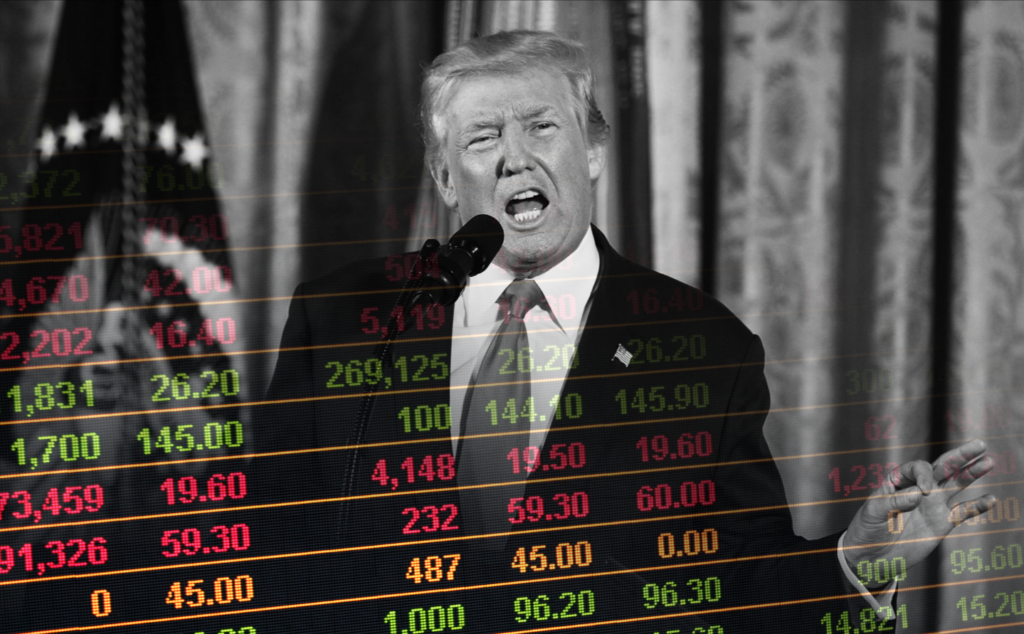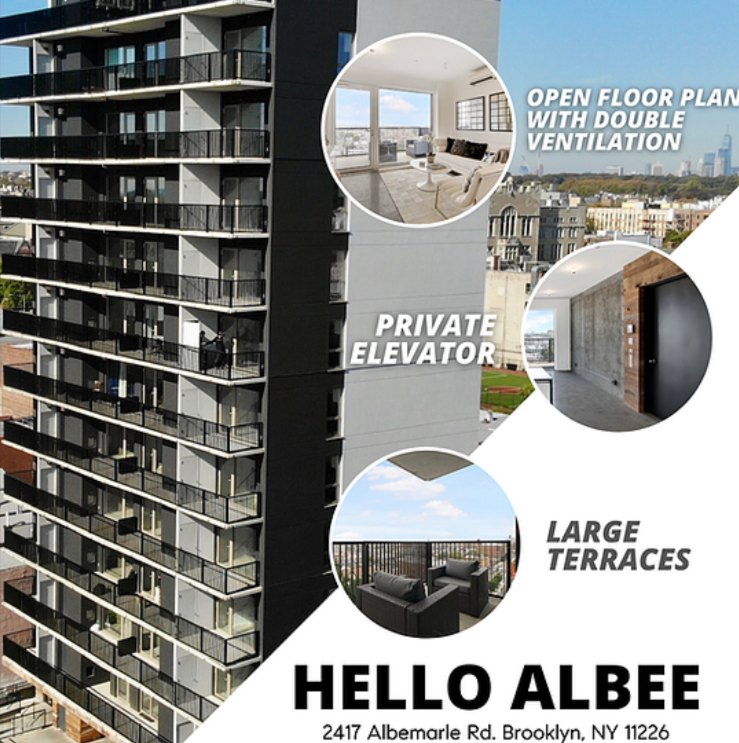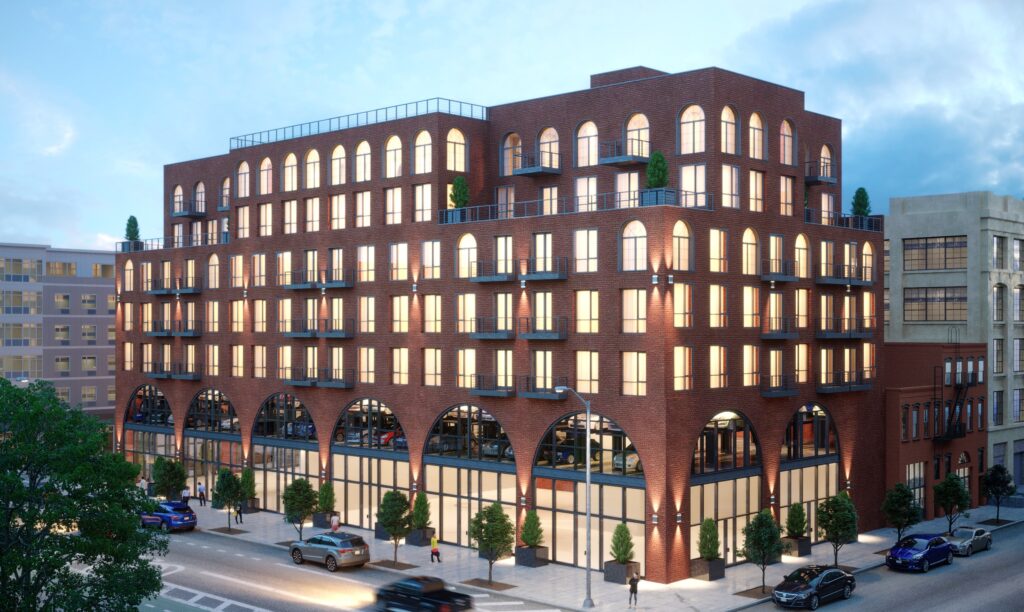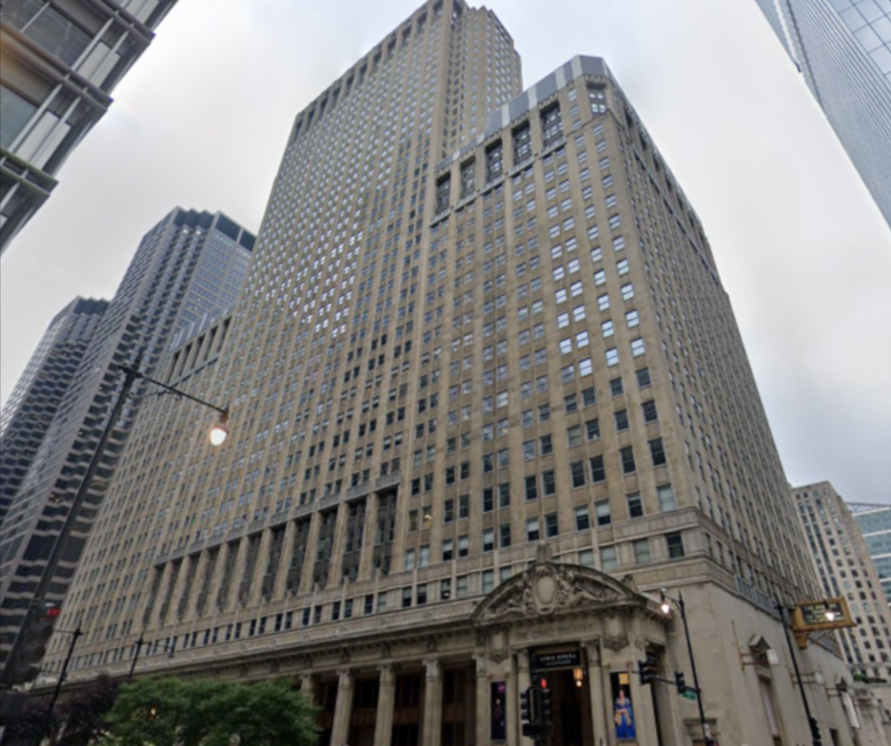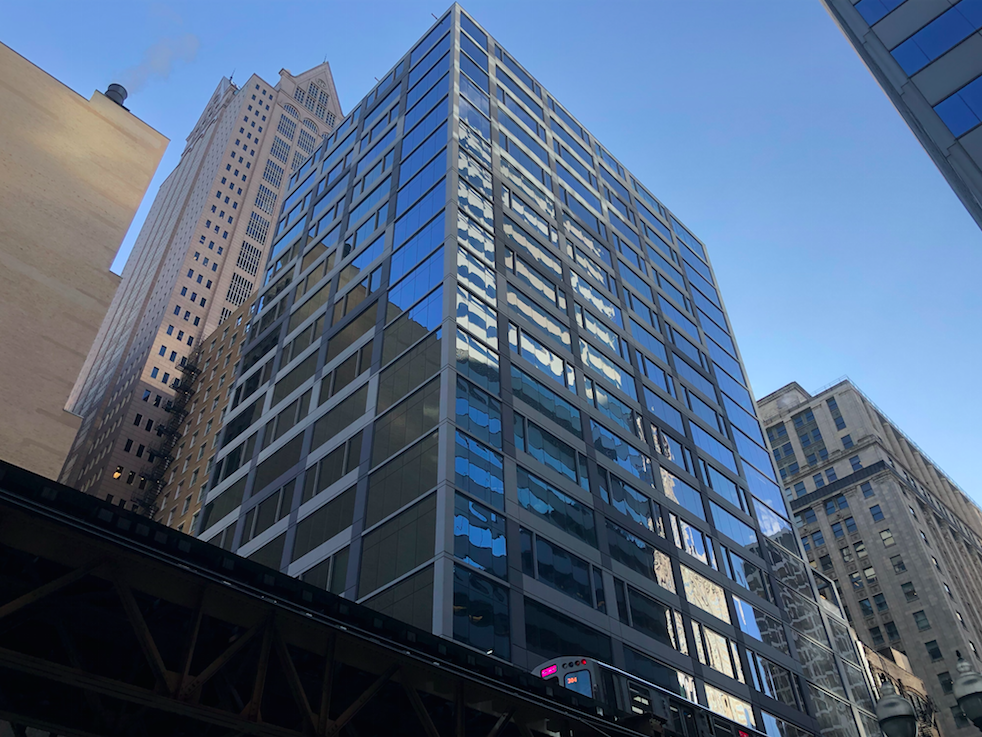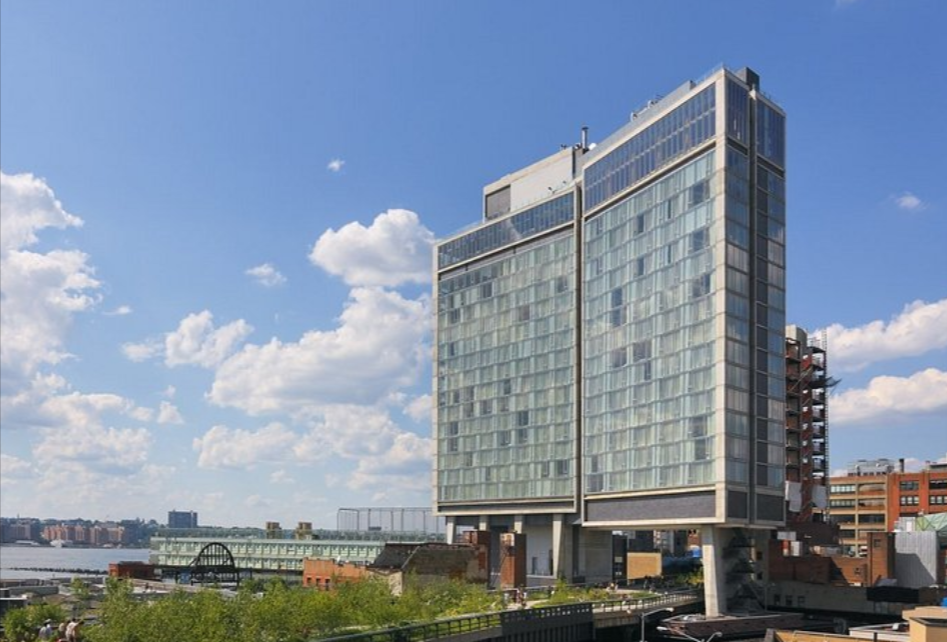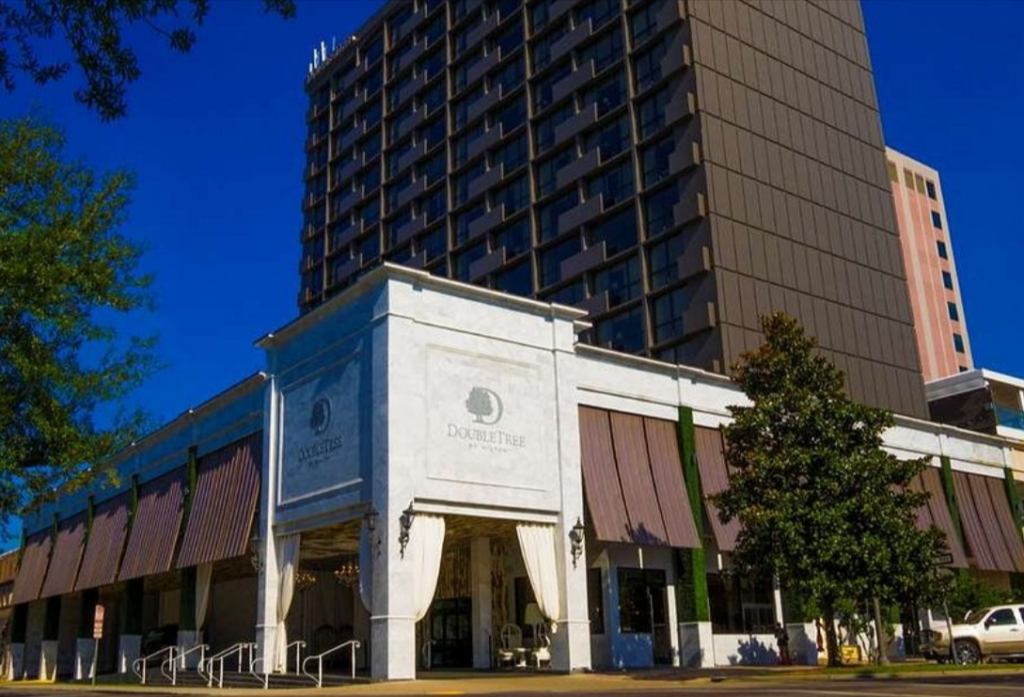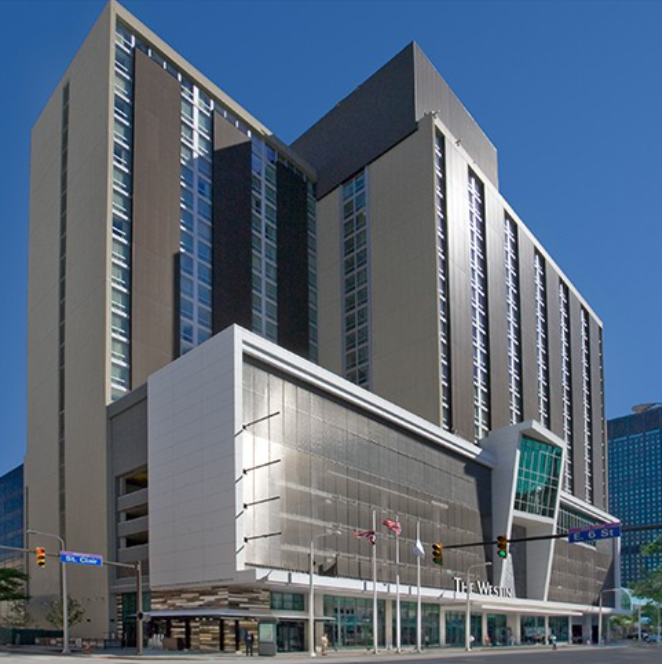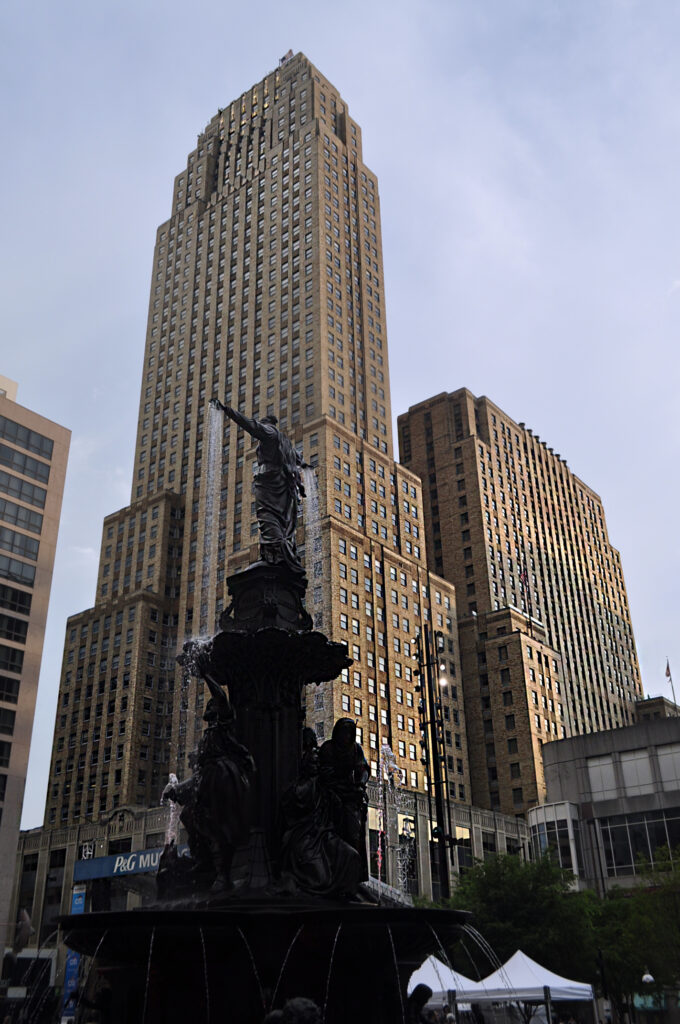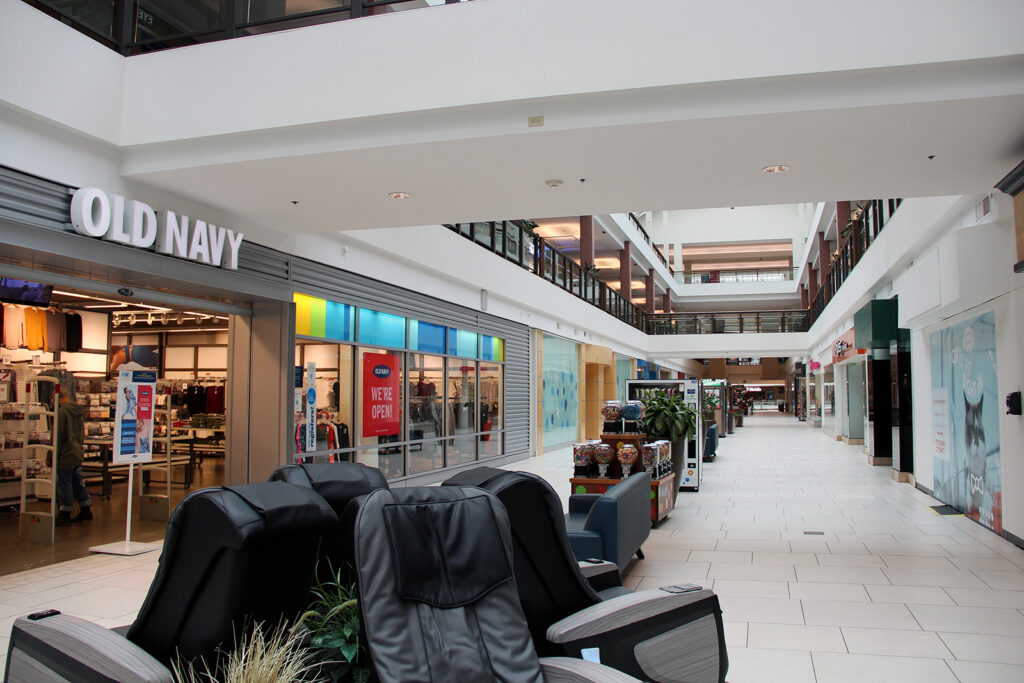22 Mortgage Programs to Get a New Home Loan in 2022
22 Mortgage Programs to Buy or Refinance a Home Learn about the various mortgage programs for home buyers and existing homeowners. Quick Links Government Help for Home Buyers Government Mortgage Loans Home Affordable Modification Program (HAMP) Home Affordable...
Commercial Property Crash 2021-2022
In 2004, Donald Trump told CNN, “I love bad markets!”
In a Trump University audiobook, he had said “I sort of hope” the real estate market crashes.
“How you react to the so-called housing bubble can be a barometer of your business personality. Are you the type of person who takes advantage of positive situations when they present themselves…or do you heed every message of doom and gloom, avoiding risks that could be some remarkable opportunities?” he wrote in a 2005 post on his Trump University blog.
A couple of years later he told the Globe and Mail in March of 2007, “People have been talking about the end of the cycle for 12 years, and I’m excited if it is. “I’ve always made more money in bad markets than in good markets.”
A year before the last market crash of 2008, Trump counseled Trump University students to take advantage of the housing bubble as an investment opportunity. He was “excited” for it to end because of the money he’d make.
“The real estate markets crashed. Now, I don’t want to blame the real estate markets, because I always made a lot of money in bad markets. I love bad markets. You can do very well in a bad market,” he said.
Fast forward to 2020-2021, it looks painfully obvious that there is another commercial property crash that is rearing its ugly head all across the nation and the world.
The economic fallout from the COVID lockdowns forced thousands of companies around the U.S. to have their employees work from home, and many went out of business.
As a result, tens of thousands of commercial buildings sat empty for several months and some for over a year, forcing a severe financial burden on their cash-strapped owners. In addition, these owners had to pay their mortgage with virtually no tenants to help foot the bill, and as it turns out, many have not been able to make their payments for most of the time.
In April 2020, the Wall Street Journal reported, “A Reckoning Looms for Commercial Real Estate – and its Lenders”. The WSJ said;
“Even as Covid-19 cases surge world-wide, the arrival of viable vaccines holds the promise of a return to something resembling normality by the middle of next year. But the commercial real-estate sector may never get back to normal, and that could spell trouble for banks. Many banks are concentrated in and dependent on commercial property lending. Banks hold half of all commercial real-estate loans.
The 5,000 or so U.S. community banks, with about a third of total assets, are two to three times as concentrated in commercial real-estate lending as the approximately 30 larger banks. Problems in commercial real estate can hurt banks in two ways. Losses on existing loans can damage earnings directly, and a correction can reduce future lending volumes, impairing an important driver of earnings.
Based on what we know now, things don’t look good.”
Around the same time, a Politico magazine article said, “Commercial real estate is in trouble, and turbulence in the $15 trillion market is threatening to bleed over into the broader financial system just as the U.S. struggles to emerge from a recession.”
Politico reported, “The number of commercial loans that have been packaged into securities going into “special servicing” — where distressed loans are transferred to a new manager hired by bondholders to negotiate a payment plan on their behalf — has steadily increased since March.
“The number of commercial loans that have been packaged into securities going into “special servicing” — where distressed loans are transferred to a new manager hired by bondholders to negotiate a payment plan on their behalf — has steadily increased since March.
And it has become clear that the virus will continue to cut into revenue for some time, so even those property owners who have been able to patch together payments — thanks in part to now-lapsed relief measures passed by Congress — may start to slip.
The loss of paying tenants could touch off a wave of property write-downs and eventual foreclosures on everything from shopping centers to apartment buildings. But it’s not just a pocket of wealthy investors who will get hurt by widespread write-downs. Eighty-seven percent of public pension funds and 73 percent of private pension funds hold real estate investments.
For nearly two years now, many major commercial properties have suffered from low occupancy rates and forced closures due to the Covid-19 pandemic. This is especially true for Hotel properties with $100-200 million dollar mortgages that have remained virtually vacant throughout the crisis.
The facts are that many commercial building owners have not made payments over the last 1-2 years, and their lenders are starting to foreclose upon them for non-payment all across the nation. Investors hold up these loans via commercial mortgage-backed securities that have been bundled and sold on Wall Street all across the globe.
An economic disaster that I predict will become a market crash as soon as investors awake from their slumber and become wise to the media propaganda lying to their ears the whole time.
It has come time for many of them to pay the piper, and it is painfully obvious that many of these property owners barely have two nickels to scratch together. But they won’t tell you that. Quite the contrary.
Now, we will see the actual grave reality for what it is.
A commercial foreclosure crash like the world has never seen.
Major commercial markets like New York and especially Chicago are starting to surge as the foreclosure tsunami rises.
Here are the latest commercial foreclosure casualties. I’m sure Trump is more than ready to use his investing skills to snatch up some great deals in the years to come.
The big question is, “are you ready?”
Below is just a tiny example of the foreclosure fallout. There will undoubtedly be many more that will make this list as the months and years go by.
NEW YORK
Hello Living East Flatbush Apartment Complex
In New York, a judge ruled that Madison Realty Capital can go after the interests of the luxury commercial developer, Eli Karp’s Hello Living East Flatbush apartment complex — and the rest of its portfolio through a UCC foreclosure sale, according to The Real Deal.
Karp founded Hello Living in 2005. He has developed 10 buildings under and six more are allegedly in the pipeline.
Karp said in an interview that Madison “wiped him out” and forced him out of business.
“I can’t get around how this happened,” said Karp. “I have lost everything.”
A spokesperson for Madison said, “We are pleased with the court’s decisive final ruling in favor of Madison. The facts of this case speak for themselves. It is unfortunate that Mr. Karp has a pattern and practice of frivolous litigation against lenders and partners to further his agenda.”
The Kent House
The luxury mixed-use project, Williamsburg residential development Kent House is facing foreclosure auction thios past month for its equity interest in the luxury mixed-use project, at 187 Kent Avenue. The commercial property located at at 187 Kent Avenue has 96 apartments and 31,000 square feet of retail is owned CW Realty.
Invictus Real Estate Partners claimed that CW Realty defaulted on a $10 million mezzanine loan. The entity was created when Invictus Real Estate Partners took over the loan, along with a $78 million senior mortgage, from Prophet Mortgage Opportunity this summer, according to The Real Deal.
Invictus has also pursued foreclosure on the property based on the defaulted $78 million mortgage loan. To counter that, CW Realty on Sept. 17 filed a hardship declaration, a measure under the state’s commercial eviction and foreclosure moratorium to stop certain commercial real property mortgage foreclosure actions from moving forward until Jan. 15, 2022.
CHICAGO
Civic Opera House
The owner of the Civic Opera House commercial property was served with a $195 million foreclosure lawsuit representing the largest case of a downtown Chicago office building in years, according to Crain.
The lender, Wells Fargo’s lawsuit claims the New York investment firm founded by Mark Karasick failed to pay monthly loan payments on the Chicago’s Civic Opera House since May, marking the biggest default for a downtown office building since the pandemic.
601W and Berkley Properties owes $154 million on loans and $28.3 million for late payments on the 915,000-square-foot art deco landmark at 20 North Wacker Drive. The Cook County Circuit Court is expected to appoint real estate services firm Transwestern as the receiver next week.
The Loop
The owner of the Loop 226,000-square-foot office building in Chicago that houses a Morton’s Steakhouse handed the keys back to its lender to avoid foreclosure after failing to sell the property.
The Irish owned REIT, Wilton U.S. Commercial performed a deed in lieu of foreclosure of the 24-story Art Deco building at 65 East Wacker Place to Acres Capital rather than face a foreclosure lawsuit due to missed loan payments, Crain’s reported.
The REIT’s director Iain Finnegan said the building lost some non-profit tenants in the building “due to a lack of state funding” and the pandemic made it too difficult to recover, leaving the company with the choice to either restructure or sell the asset.
Wilton bought the building in 2010 for less than $16 million. The property had been seized by what is now CIBC through a foreclosure. After losing tenants over the years, Wilton struggled to cover the $1.3 million debt service payment in 2019 after generating less than $375,000.
Standard Hotel High Line
The owner of the luxury Standard Hotel High Line, the Hong Kong–based private-equity firm Gaw Capital hasn’t made a mortgage payment since May 2020, according to Crain’s.
The investment firm owes nearly $187 million, according to a foreclosure lawsuit filed recently in U.S. District Court in Manhattan.
Wells Fargo sent the owners a notice of default on their mortgage in June 2020 demanding demanded that Gaw Capital pay back the entire balance, but they failed to make payments for the next 17 months, the lawsuit says.
The loan backing the property is part of commercial mortgage-backed security or CMBS.
According to Curbed, “The 338-room hotel founded by André Balazs was purchased in 2017 by Gaw Capital, a Hong Kong–based private-equity firm led by Goodwin Gaw. Gaw bought the Standard for $340 million, $60 million less than it had been in contract for a few years before, and took out a $170 million acquisition loan from Natixis, a French investment bank that was bullish on hotels at a time when other lenders were pulling back.
“New York’s hospitality sector is a little out of favor at the moment,” Gaw told Forbes at the time. But during the last year and a half, the hospitality sector has fallen more than a little out of favor, with a global pandemic and travel bans making Airbnb and market oversaturation seem like relatively minor woes.
Gaw Capital owns several commercial properties across the country, mainly in San Francisco and the Standard Hotel High Line is its only New York City asset.
If you own shares in Gaw Capital, you may want to pull your money out soon because this news is a big red flag that they are in serious financial trouble.
Over the past year, several Manhattan hotels have permanently closed. The Roosevelt Hotel, which was owned by Pakistan’s national airline company, and the AKA Wall Street hotel, which has since been converted into apartments.
FLORIDA
DoubleTree Hotel by Hilton of Tallahassee
The Tallahassee DoubleTree Hotel by Hilton on Adams Street through his Delaware-based limited liability corporation, IB Tallahassee, LLC., a hotel owned by JT Burnette is going into foreclosure.
A Leon County court ruled on Sept. 24 that unless his company pays more than $32 million owed by the sale date, the property will go up for auction, which was scheduled to be auctioned on Oct. 28, and sold to a sucker buyer for $23 million.
Burnette was convicted on corruption charges earlier this year and will be sentenced in November 2021, according to ABC 27.
OHIO
Westin Cleveland Downtown
The Westin Cleveland Downtown is facing foreclosure but has found a sucker buyer to possibly buy the property. In later October, the owners through their attorney had asked a judge to approve the sale of the hotel to HEI Hotels & Resorts for $40.2 million, according to a motion and a copy of the agreement the lawyers for receiver Tim Collins filed in Cuyahoga County Common Pleas Court.
The Carew Tower
According to Cincinnati.com, the Carew Tower, one of Downtown’s most iconic buildings, is facing foreclosure and more than $642,000 in delinquent utility bills just over a year after the building was put up for sale.
Lender Veles Partners LLC filed a foreclosure lawsuit against the building’s owner, Greg Power, on Oct. 15 for defaulting on the mortgage, according to Hamilton County Common Pleas Court records.
Veles claims Power owed $9,664,656 in principal on the loan, about $93,630 in interest and $3,594 in late fees as of Oct. 5.
Power — a Downtown-based commercial real estate investor who owns the Carew Tower and the connected 561-room Hilton Cincinnati Netherland Plaza Hotel — was served a summons on Nov. 2.
OREGON
Loyd Center Mall
A New York-based real estate lending company says it plans to foreclose on the Lloyd Center mall and redevelop the beleaguered Northeast Portland shopping center.
According to Oregon Live, KKR Real Estate Finance Trust said it plans to take ownership of the 1.2 million square foot mall before the end of the year. The company says payments on its $110 million debt have been overdue since October 2020.
“Upon taking title, which is targeted for the fourth quarter, we’ll begin to plan for a comprehensive redevelopment of the site, which we expect will include multiple uses including residential and creative offices,” said Patrick Mattson, the president and chief operating officer of the company. Bloomberg Law first reported the comments.
KKR loaned $177 million toward a renovation of the Lloyd Center in 2015.
Lloyd Center opened in 1960 as a 100-store, open-air mall, said at the time to be the largest in the world. It was covered in the 1980s with a glass ceiling, then extensively renovated in the 1990s into a more traditional enclosed shopping mall with a central food court.
Mortgage News
Latest Mortgage News Subscribe to Our Newsletter FollowFollowFollow Demand for Second Homes Declines As Mortgage Rates Rise A new Redfin report says the rush to purchase second homes dropped in February to its lowest level since May 2020. Though demand is still up 35%...Home 2021
Welcome to LoanSafe.org Since 2008, LoanSafe.org has been America’s #1 mortgage forum for homeowners to ask questions and get professional help. Mortgage Refinance Options Let LoanSafe’s mortgage expert, Erik Sandstrom with Prime Lending show you the best...Refinance
Refinance Your Mortgage Learn everything you need to know about refinancing your mortgage the right way with LoanSafe. With Mortgage rates currently at all time lows, many believe it is a great time to refinance your mortgage. If you’ve been lucky enough to have had...Privacy Policy
LoanSafe.org is not for a profit website. We are not affiliated with any bank, lender, mortgage broker, loan modification company, law firm or with the United States Government.
We are funded by advertising such as Google Adsense and the current advertisers such as the Loan Modification Help Center and New American Funding.
The articles, comments and all the materials available on this website are for informational purposes only, and not for the purpose of providing legal advice. You should contact an attorney to obtain legal advice with respect to any particular legal issue or problem. The comments expressed on this website are the opinions of the individual author and may not reflect the views of our company. LoanSafe.org is owned by MoeSeo Inc. A California Corporation.
LoanSafe.org is not to be held liable for any business relationship you establish when visiting our website.
- The comments by us and the materials available at this web site are for informational purposes only and not for the purpose of providing legal advice.
- You should contact your attorney to obtain advice with respect to any particular issue or problem.
- The opinions expressed at or through this site are the opinions of the individual author and may not reflect the opinions of our employers, other ventures or any individual attorney.
- No advice or information, whether oral or written, obtained by you or through or from this blog shall create any kind of promise or business relationship.
- The views and opinions on this website are likely to change over time, we like to keep an open mind and thoughts and opinions stated on out-of-date posts may change over a period of time and may not hold true for the present.
- You are expected to do your own due diligence and seek advice from other sources such as an attorney.
- Do not hold us to what we say or recommend as this is only for providing you with non-legal advice and non-legal support.
- While we do strive to confirm all information presented here and qualify all doubtful items, the information on this site is neither definitive nor should it be construed as professional advice. It is a community site that depends on community feedback. Factual or alleged factual information presented here does not originate from LoanSafe.org or LoanWorkout.org, and all commentary is purely the opinion of the author(s) of this site, unless otherwise quoted from other sources. You should consult a finance professional before making any decisions based on information found at this site.
- Financial disclosure (good faith): The contributors to this site may, from time to time, hold short (or long) positions in mentioned and related companies.
This website and ‘s owners will not be held liable for any user submitted content on this website. Under a Federal Law the Communications Decency Act or CDA, 47 U.S.C. § 230.
Section 230 of the Communications Decency Act
No provider or user of an interactive computer service shall be treated as the publisher or speaker of any information provided by another information content provider.
The Communications Decency Act or CDA provides that when a user writes and posts material on a website such as LoanSafe.org, the site itself cannot, in most cases, be held legally responsible for the posted material. Specifically, 47 U.S.C. § 230(c)(1) states, No provider or user of an interactive computer service shall be treated as the publisher or speaker of any information provided by another information content provider. Because the reports on Ripoff Report are authored by users of the site, we cannot be legally regarded as the “publisher or speaker of the reports contained here, and hence we are not liable for reports even if they contain false or inaccurate information.
The reasons for this rule are simple. Websites cannot possibly monitor the accuracy of the huge volume of information which their users may choose to post. If a disgruntled plaintiff were permitted to hold a website liable for information that the site did not create, this would stifle free speech as fewer and fewer sites would be willing to permit users to post anything at all. See generally Batzel v. Smith, 333 F.3d 1018, 1027“28 (9th Cir. 2003) (recognizing, Making interactive computer services and their users liable for the speech of third parties would severely restrict the information available on the Internet. Section 230 [of the CDA] therefore sought to prevent lawsuits from shutting down websites and other services on the Internet.)
In general, each and every lower federal district court and federal appellate court that has construed the CDA has held that websites like LoanSafe.org are immune from virtually every type of civil liability when the site has been sued based on information posted by a third party. See Doe v. America Online, Inc., 783 So.2d 1010 (Fl. 2001); Green v. America Online, 318 F.3d 465, 470 (3rd Cir. 2003) (noting that the CDA, “‘precludes courts from entertaining claims that would place a computer service provider in a publisher’s role,™ and therefore bars lawsuits seeking to hold a service provider liable for its exercise of a publisher’s traditional editorial functions – such as deciding whether to publish, withdraw, postpone, or alter content); Carafano v. Metrosplash.com, Inc., 339 F.3d 1119 (9th Cir. 2003); Schneider v. Amazon.com, Inc., 31 P.3d 37 (Wash.App. 2001); Doe v. GTE Corp., 347 F.3d 655 (7th Cir. 2003); Zeran v. America Online, Inc., 129 F.3d 327 (4th Cir. 1997); Blumenthal v. Drudge, 992 F. Supp. 44 (D. D.C. 1998).
So, why should you care about this law? Well, if someone posts false information about you on the LoanSafe.org, the CDA prohibits you from holding us liable for the statements which others have written.
- LoanSafe.org takes the same stance on rebuttals to claims and accusations made by users and in fact we encourage you to defend these claims if you believe they are inaccurate.
We take very claim as being serious as well as every rebuttal. Please email Moe @ LoanSafe.org any rebuttal you may have to the claims or reports made on his website. We will post any rebuttals to the user created thread to give you a chance to have your voice be heard, but we will not remove any material that has been posted via user generated content.
Use the complaint as an opportunity to make things right with your client and ask that the client works with you to resolve and mediate the issues at hand. If a successful resolution is made, ask your client to update he claim or report to states that there has been a successful resolution to the matter.
If you think a claim or report is false and written with the intention to harm you or your business or you believe it is a competitor then please email me with “supporting†documentation to validate your claims and I will look into this to the best of my ability.
Privacy Policy Continued:
Consumer activism and service to our fellow man or woman is very important to us. As we continue to improve and expand our services, we. recognize that visitors to our website need and desire to preserve their privacy and confidentiality. Safeguarding our members and the visitor’s privacy is also very important to us. We have adopted standards that help maintain and preserve the confidentiality of visitors and member’s nonpublic personal information. The following statement affirms our continued efforts to safeguard customer information.
Information We Collect
We gather nonpublic personal information about our members on occasion as may be necessary to conduct business with our members or to help advise them. We collect nonpublic personal information about you from the following sources:
- Information we receive from you on applications or other forms, over the telephone or in face-to-face meetings, and via the Internet. Examples of information we receive from you include your name, address, telephone number, social security number, credit history and other financial information.
- Information about your transactions with us or others. Examples of information relating to your transactions include payment histories, account balances and account activity.
- Information we receive from a consumer reporting agency. Examples of information from consumer reporting agencies include your credit score, credit reports and other information relating to your creditworthiness.
- From employers and others to verify information you have given to us. Examples of information provided by employers and others include verifications of employment, income or deposits.
Information We Disclose
- Your personal information will only be retained for the purpose of providing you with our response to your query and will not be made available to any third party except as necessary to be disclosed to any related entity for the purpose intended or as required to be disclosed under law.
- By submitting data on our website, the visitor is providing explicit consent to transmission of data collected on the website.
- We treat data as confidential within our firm and require a strict adherence of all our employees to data protection and our confidentiality policies.
All visitors, however, should be aware that our website may contain links to other sites that are not governed by this or any other privacy statement.
We reserve the right to amend (that is, add to, delete or change) the terms of this Privacy Statement from time to time.

